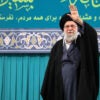For a leader, neglect almost always turns out for the worse. Problems fester. Opponents are emboldened, and supporters demoralized. Aimlessness begets powerlessness, as changing positions confuse and bewilder. Then, after all is said and done, the very thing you most earnestly wanted to avoid comes to pass anyway, only now it’s too late for you to do anything about it.
That is the sad predicament President Obama now faces in Egypt. He has never figured out what to do. He is like an eager amateur who rushes in with easy answers, only to find they don’t work. He then pulls back in a fog of passivity, pretending his newfound aloofness was his intent all along.
Look at his record in Egypt. At one point, Obama backed former President Hosni Mubarak. Then he abandoned him. Next, under the democratic banner of “letting the Egyptian people decide,” he stood on the sidelines as the Muslim Brotherhood took power and began to run the country into the ground. Again unsure of what to do, he took what he thought was the line of least resistance—supporting the Brotherhood and its leader, President Mohamed Morsi.
Only that didn’t work either. Now Morsi is gone, and all the President can muster in response is that he is “deeply concerned” by the Egyptian military’s decision to oust Morsi. Once again Obama got it wrong, and his policy is repudiated.
Foreign policy is hard. An American President cannot dictate events in Egypt. But that’s no excuse for wandering all over the place in confusion. The United States had tremendous influence with the army at the beginning of the Egyptian revolution. Obama squandered it by backing Morsi and his Brotherhood allies.
Now the demonstrators accuse the U.S. of being Morsi’s lackey. Protesters, disappointed by Obama’s uncritical support for Morsi, carried signs denouncing President Obama; one banner visible the day the military deposed Morsi, for example, read “Obama Stop Supporting MB [Muslim Brotherhood] Fascist Regime.”
That’s quite an “achievement.” The only “friends” America seems to have left are Morsi supporters in the anti-Western Brotherhood, who despise American values, oppose U.S. policies, and now blame Obama for backing the army “coup” against Morsi. Thus, the U.S. ends up on the side of the very Islamist group that spawned decades of Islamist enemies of America. And it does so in such a way that its natural allies, the secular democrats, no longer trust us.
There are two reasons why Obama has bungled Egypt. The first is he sincerely believes that too much American influence is a bad thing. Believing deeply that American power is a problem, he seems to think remaining aloof will prove that America is not an inveterate enemy of political Islam.
Only that’s not the problem in Egypt. It’s not American power that is causing Egyptians to doubt the U.S. It is wavering and support for the wrong side. In particular for the demonstrators, the Administration’s embrace of Morsi is seen as a betrayal of our nation’s dedication to democracy and freedom.
The other reason? Obama is confused about what constitutes democracy. Even though he himself said democracy is “more than elections,” that is not the way he’s acted. He watched as the election process chose the worst of the political lot in Egypt, all the while claiming that the U.S. should not “interfere” with the democratic rights of the people. He talked a good game, but his passivity only legitimized the claims that the Brotherhood is a “true” democratic force in Egypt (which they decidedly are not).
Whatever happens, nobody in Egypt is likely to trust Obama’s word again. His tendency is to support whoever ends up in power, but in the meantime, none of the factions knows which way he will jump.
As English rhetorician Richard Whately once said, “It is the neglect of timely repair that makes rebuilding necessary.” Yes indeed. That’s why it’s time to start rebuilding our Egypt policy.
Kim R. Holmes, a former assistant secretary of state, is a Distinguished Fellow at The Heritage Foundation.































